Surviving stage 4 lung cancer with immunotherapy treatment
Patients like Carol Pitman are living longer thanks to advances in lung cancer therapies. Learn how Kaiser Permanente uses immunotherapy to treat cancer.
With her cancer stable and under control, Pitman can focus on the activities she loves most — from preserving historic landmarks to doing the daily crossword.
Vibrant and active at age 77, Carol Pitman came down with a cold after gathering with her friends to watch a football game in 2019.
“I was still coughing a week later, so I went in to see my doctor,” Pitman recalled.
Pitman wasn’t at all prepared for her diagnosis. Following a physical exam, chest X-ray, and CT scan (a type of medical imaging), she received some shocking news.
She had lung cancer.
Immunotherapy advances cancer treatment
Pitman had no symptoms other than her cough. So she was even more surprised to learn that she had stage 4 lung cancer. The cancer had spread from one lung to the other and to the surrounding lymph nodes.
Pitman’s case wasn’t unusual. Lung cancer frequently goes undetected until it’s at an advanced stage because symptoms don’t appear before then. Or if there are symptoms, they’re often similar to other health problems.
Stage 4 lung cancer can’t be cured. But Pitman’s oncologist, Tanvir Sattar, MD, reassured her that advances in treatment could extend her life expectancy.
For example, new kinds of immunotherapy can stimulate the body’s own immune system to slow or stop the growth of cancer cells.
“Since we started adding immunotherapy to chemotherapy,” said Dr. Sattar, “our patients’ median survival time has gone from 9 to 12 months to about 18 months. We’ve also been able to improve their quality of life during that time.”
Since Pitman’s diagnosis, a combination of therapies has kept her cancer stable and under control.
“You’d never know by looking at me that I have cancer,” said Pitman. “It’s really remarkable.”
Surviving stage 4 lung cancer: ‘We are going to work at this together’
Going through cancer treatment made Pitman especially vulnerable to COVID-19. So she spent lots of time at home during the pandemic.
She’s a member of multiple historical societies. She participated virtually to stay in touch. She also keeps her mind active by reading and doing The New York Times crossword puzzle every day.
“Dr. Sattar and my entire care team have been simply wonderful,” Pitman said.
“When he first told me I have cancer, he put his hand on my shoulder and said, ‘We are going to work at this together.’ And boy, have we!”
Learn more about cancer care at Kaiser Permanente.
-
Social Share
- Share Surviving Stage 4 Lung Cancer With Immunotherapy Treatment on Pinterest
- Share Surviving Stage 4 Lung Cancer With Immunotherapy Treatment on LinkedIn
- Share Surviving Stage 4 Lung Cancer With Immunotherapy Treatment on Twitter
- Share Surviving Stage 4 Lung Cancer With Immunotherapy Treatment on Facebook
- Print Surviving Stage 4 Lung Cancer With Immunotherapy Treatment
- Email Surviving Stage 4 Lung Cancer With Immunotherapy Treatment

April 30, 2025
From fighter to father: How addiction care changed his life
Travis Taylor has substance use disorder and mental health conditions. …
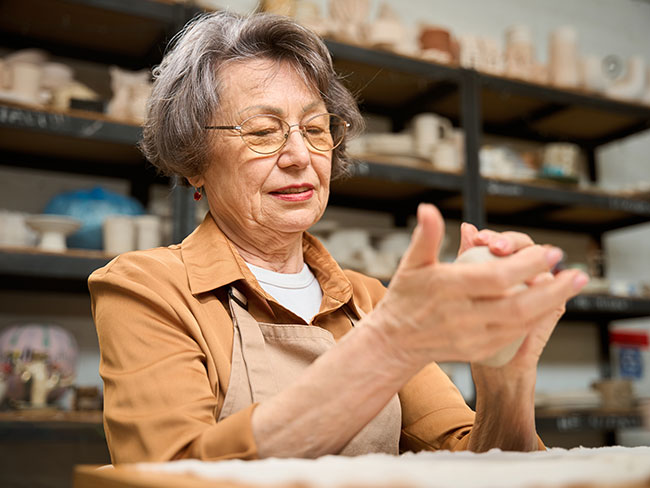
April 28, 2025
When your care team asks what matters to you
A Kaiser Permanente geriatrician shares how our proactive approach to personaliz …

March 27, 2025
Living proof: Colon cancer highly treatable if caught early
There is an alarming rise in colon cancer rates among younger adults. Cynthia …

March 7, 2025
High blood pressure during pregnancy is on the rise
The keys to preventing cardiovascular conditions during pregnancy are knowing …
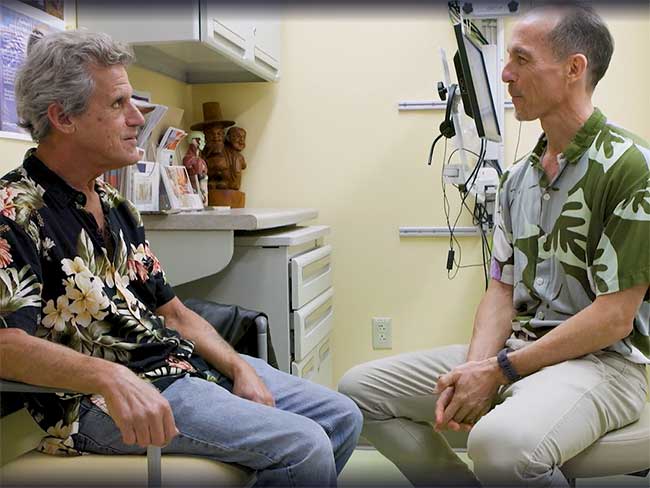
March 7, 2025
Kaiser Permanente in Hawaii cures 1,000th patient with hepatitis C
The milestone highlights its Viral Hepatitis Clinic's crucial role in addressing …
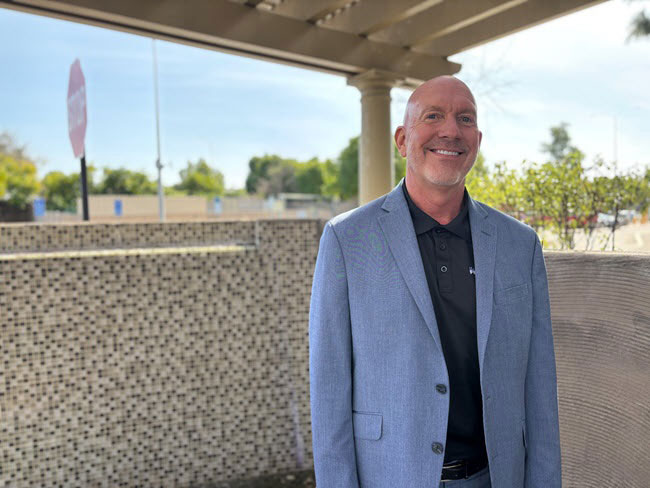
February 27, 2025
‘The heart attack that saved my life’
A sudden heart attack led Mark Twichel to seek care at Kaiser Permanente …

February 26, 2025
Colon cancer: Do you need to be screened?
If you’re age 45 or older, getting checked regularly for colorectal cancer …

February 18, 2025
I just need a chance
Billy Cardosi spent his life putting his family and job first. Then a heart-rela …

February 14, 2025
A fulfilling life on the other side of ovarian cancer
As a wife and a mother, Autumn Gray was determined to beat cancer to be …
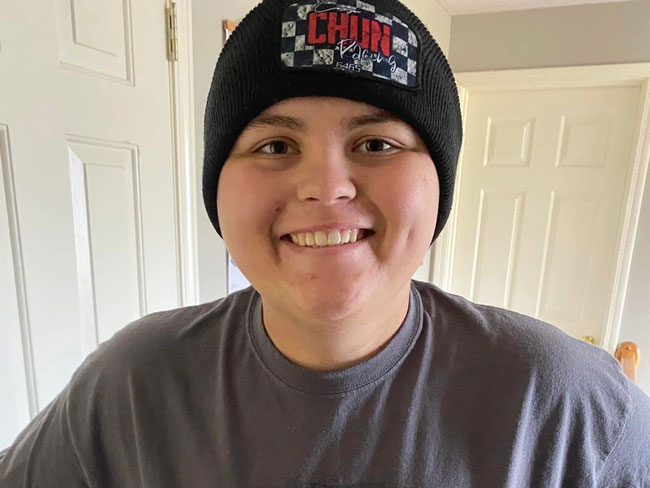
February 12, 2025
Back on track after a rare cancer diagnosis
After facing sarcoma at age 18, drag-racing champion Cooper Chun needed …

February 4, 2025
What is therapy, anyway?
At Kaiser Permanente, our care is personalized for each patient's mental …
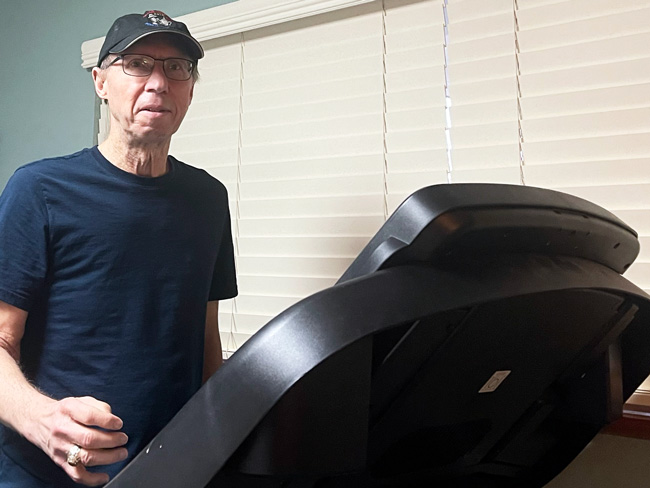
January 15, 2025
After surgery, home was where his heart was
Virtual cardiac rehabilitation offers Mike Erskine a convenient, safe way …
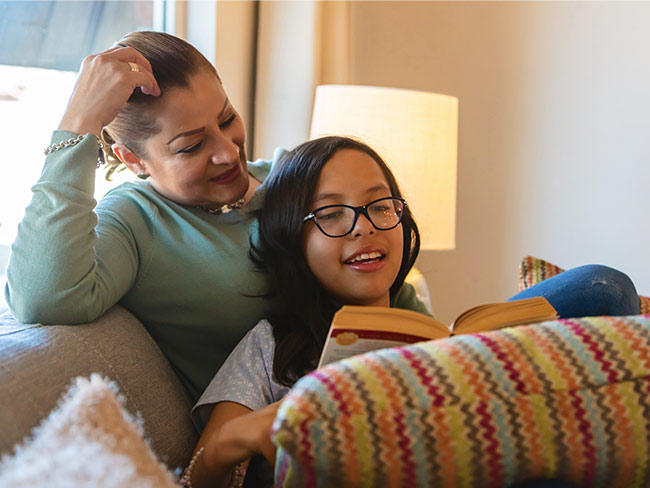
January 13, 2025
How to prevent cervical cancer
Cervical cancer is highly preventable. HPV vaccination and regular screenings …

December 26, 2024
How telehealth can make life easier for people with cancer
Virtual care connects cancer patients like Rob Tufel to a wide range of …

November 26, 2024
How to reduce your risk of stroke
A Kaiser Permanente doctor and researcher shares the simple changes you …

November 22, 2024
Aging with HIV: Research finds increased risk of dementia
Our researchers want to find out why people with HIV have an increased …

November 18, 2024
The power of early detection and proactive men’s health
A father's determination to stay healthy for his 3 children led him to …
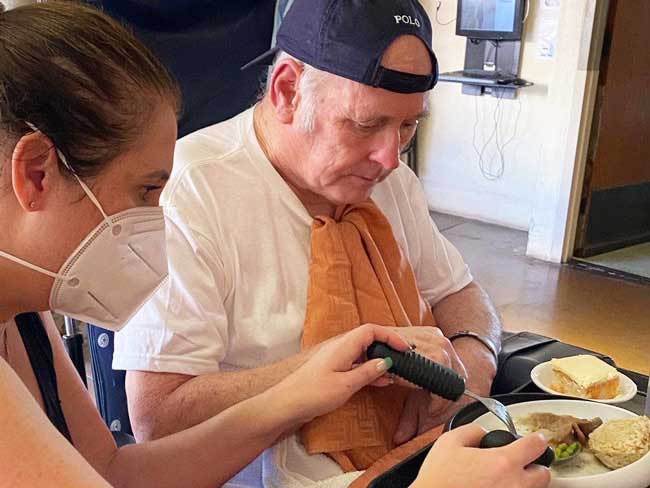
November 13, 2024
Self-care for caregivers matters: Here’s why
A sharp increase in rates of adult caregiving is taking a mental and physical …
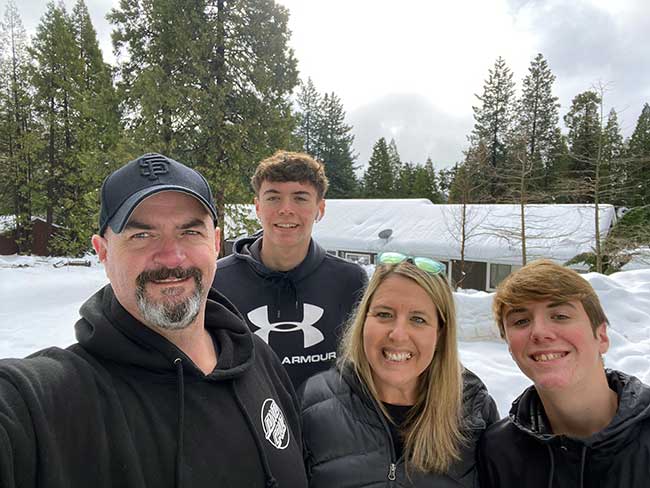
November 12, 2024
Surviving lung cancer as a nonsmoker
As a lifelong nonsmoker, Mariann Stephens was shocked to learn she had …

October 29, 2024
That’s not tennis elbow
A Kaiser Permanente physician thought he pinched a nerve during a tennis …
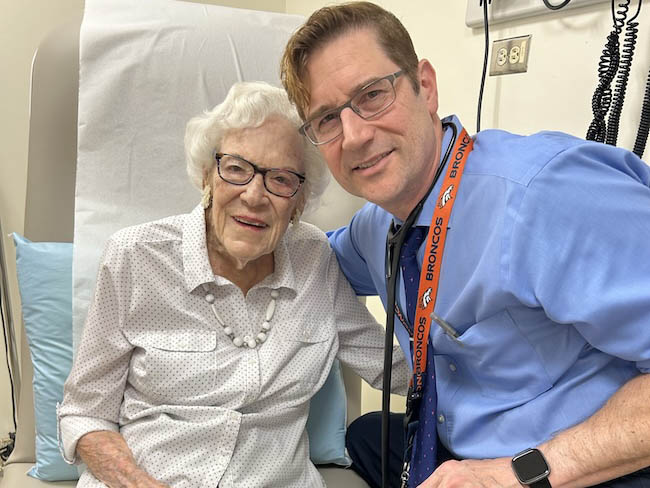
October 15, 2024
107-year-old member credits Kaiser Permanente for longevity
Bettye Garrett’s personal doctor says her healthy perspective on life’s …
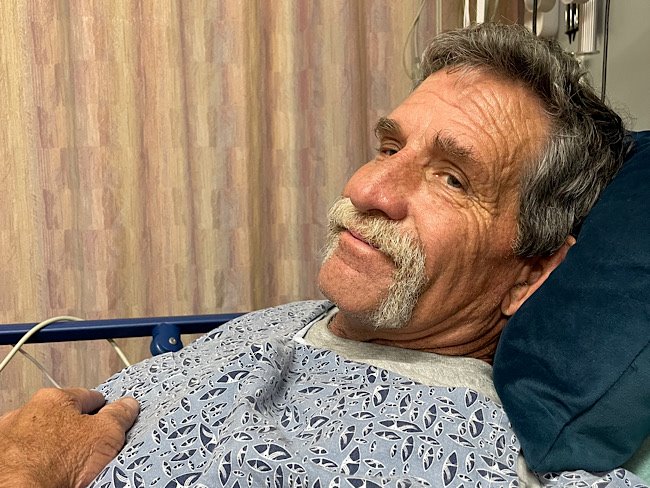
October 8, 2024
It started with a bad feeling
In August 2023, John Lynn collapsed at work. For the next year, he fought …

October 4, 2024
Teacher learns about herself and how to live with anxiety
A lifelong educator seeks behavioral health care to manage repetitive worries, …
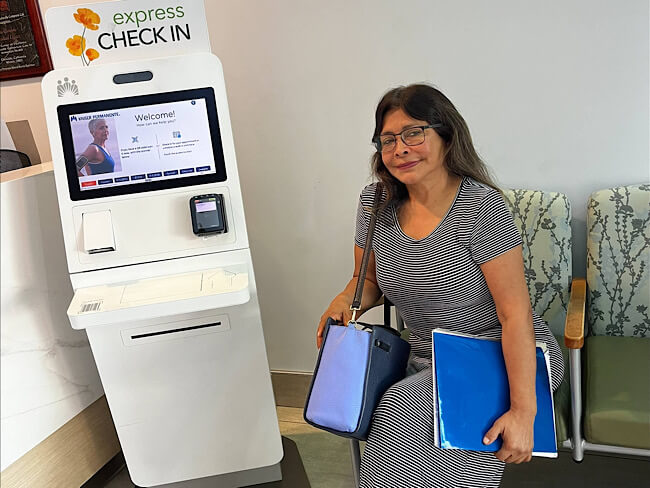
October 2, 2024
A new lease on life
Kaiser Permanente’s medical-legal partnership offers a lifeline for members …

October 1, 2024
Screening for breast cancer: Mammogram guidelines
A Kaiser Permanente radiologist answers commonly asked questions.

October 1, 2024
From depression to connection: Older adult finds her way
After a long period of loneliness and isolation, Roberta Maguire gets the …

September 20, 2024
Ovarian cancer journey confirmed nursing student's calling
Miriam Gutierrez was diagnosed with late-stage ovarian cancer at age 31. …

September 18, 2024
More than 100 ‘Top Docs’ recognized in Washington state
Kaiser Permanente celebrates doctors and nurse practitioners recognized …
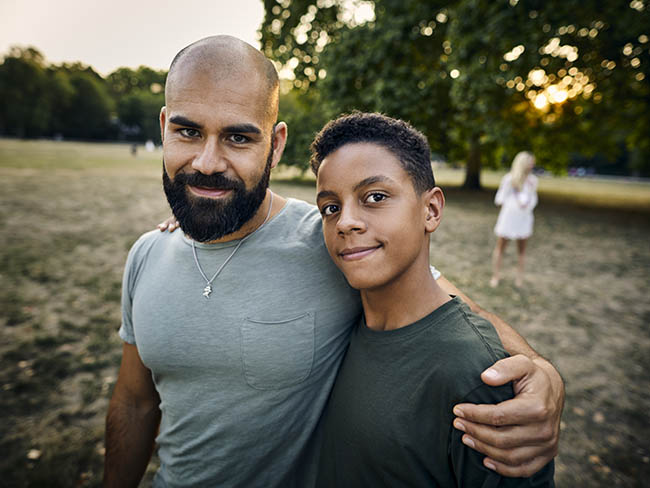
September 18, 2024
Cancer rates are rising in younger age groups
‘Connect’ with research to help understand more about the increase of certain …

September 17, 2024
A Latina’s voice in mental health is impactful with her clients
Connecting through a shared heritage gives one therapist a unique perspective …

September 17, 2024
Playing on after 2 decades of cancer care
With the support of his health care team and nurse navigator, musician …

September 17, 2024
Groundbreaking at new medical offices in Pueblo
The new Pueblo North Medical Offices will replace the existing facility …
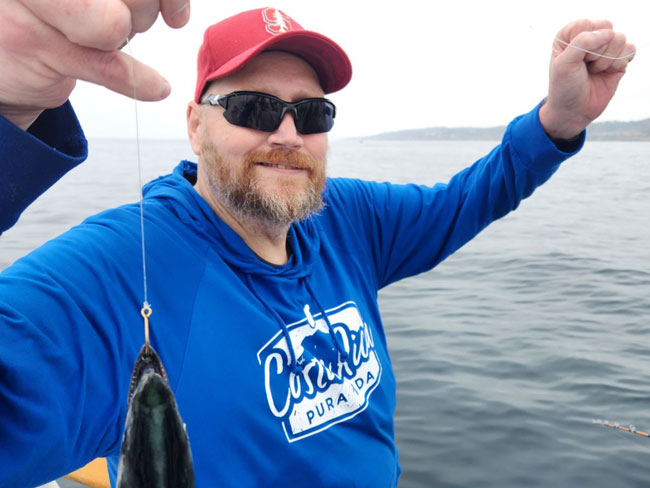
September 6, 2024
Navigating a world turned upside down after heart failure
After a life-threatening series of heart attacks at age 57, Bunnell Fockler …

August 29, 2024
After Stage 4 ovarian cancer, she’s still going strong
Donna Budway received prompt surgery followed by chemotherapy. She credits …
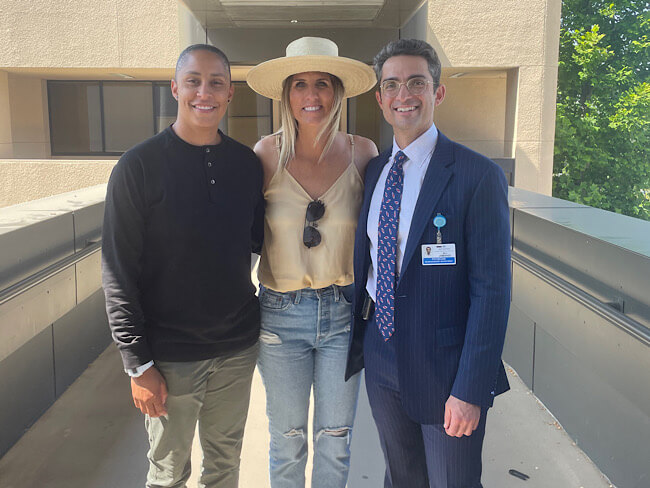
August 29, 2024
Neurosurgery and a deep, enduring doctor-patient relationship
A basketball coach’s remarkable story of undergoing brain tumor surgery …
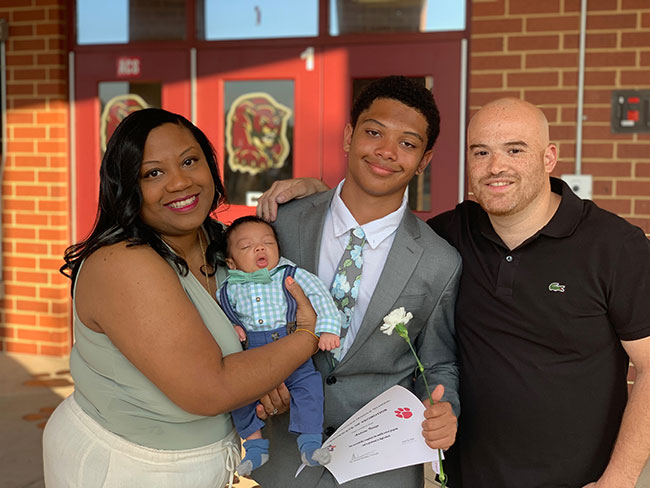
August 28, 2024
Making breastfeeding work: A second-time mom’s journey
Support from a dedicated care team helps Tiffany Anonye breastfeed her …
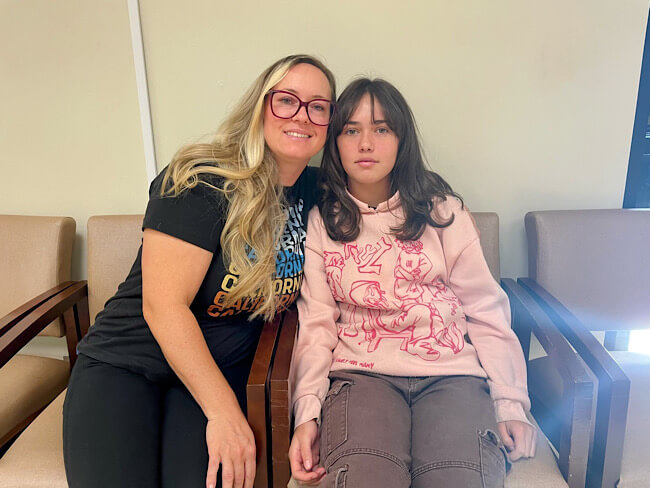
August 27, 2024
From sore throats to ice cream floats
A mother and daughter share a special bond after undergoing tonsillectomies …
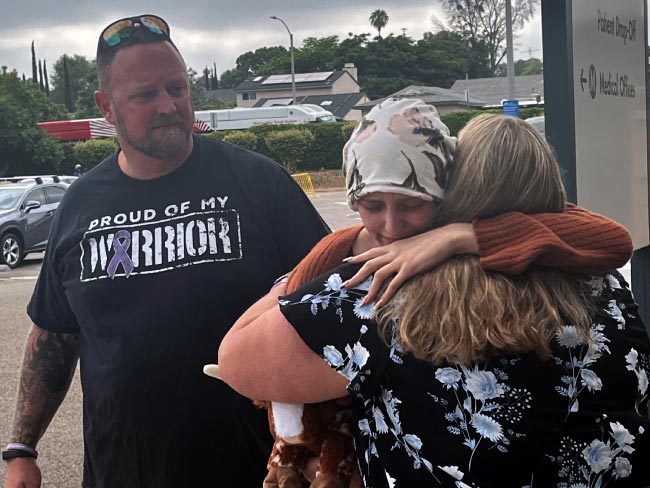
August 26, 2024
Katie's ride: Motorcycle rally a surprise for patient
Kaiser Permanente in San Diego helped plan a special send-off for Katie …

August 15, 2024
Back home one day after heart surgery
Ed Dalmasso needed an aortic valve replacement. His care team provided …
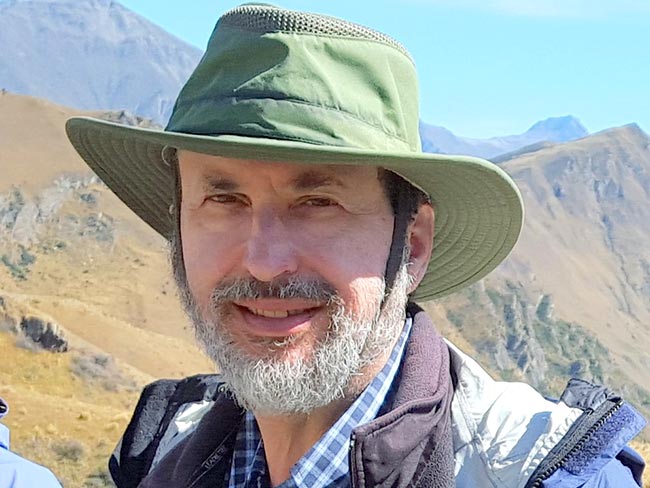
August 6, 2024
For a father with prostate cancer, knowledge is power
Harold Newman had advanced prostate cancer. Genetic testing helped expand …

August 1, 2024
Kaiser Permanente tops Colorado ‘Top Doctors’ list
5280 Magazine named 332 Kaiser Permanente physicians to its annual Top …

July 26, 2024
Collaboration transforms care for older adults
Our partnership with ONEgeneration aims to prevent homelessness and improve …

July 10, 2024
We help members lower their risk of heart attacks and strokes
A Southern California program, powered by our connected care model, is …
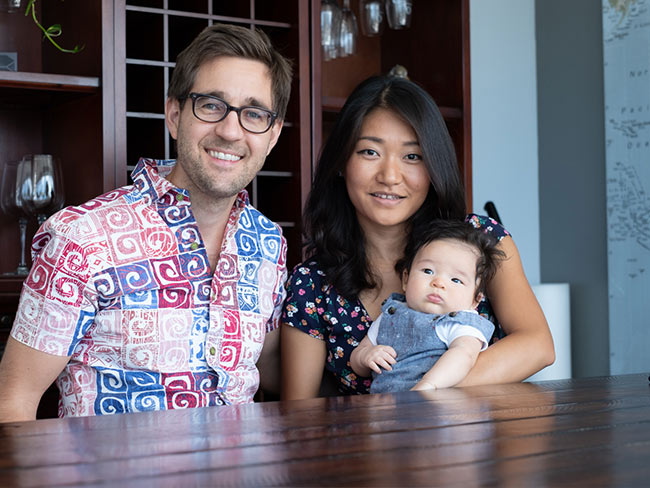
June 25, 2024
Prompt postpartum care saves a baby’s life
When a newborn was diagnosed with meningitis, a life-threatening infection …
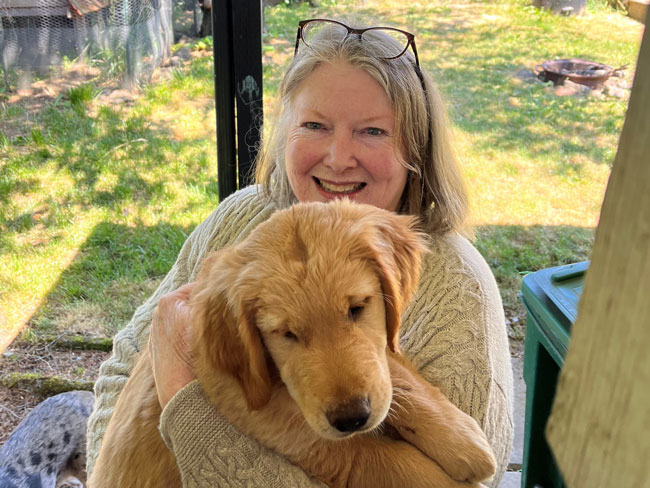
June 17, 2024
A culture of caring eases a cancer journey
Exceptional, personalized radiation oncology care helped Maura Craig treat …

June 13, 2024
Conquered 2 cancers while climbing mountains
Chris Hogan faced kidney cancer and prostate cancer at the same time. He …

June 3, 2024
A call to ‘Connect’ for cancer prevention research
Participate in a study to help uncover the causes of cancer and how to …

May 31, 2024
Stage 4 lung cancer: A story of hope
A young father is enjoying “bonus time” with his kids thanks to new targeted …

May 14, 2024
Long-term study offers clues for healthy aging
Our researchers are learning about brain health and ways to reduce the …

May 7, 2024
Making cancer care more convenient in Southern California
Kaiser Permanente has opened a new Radiation Oncology Center at the Bellflower …
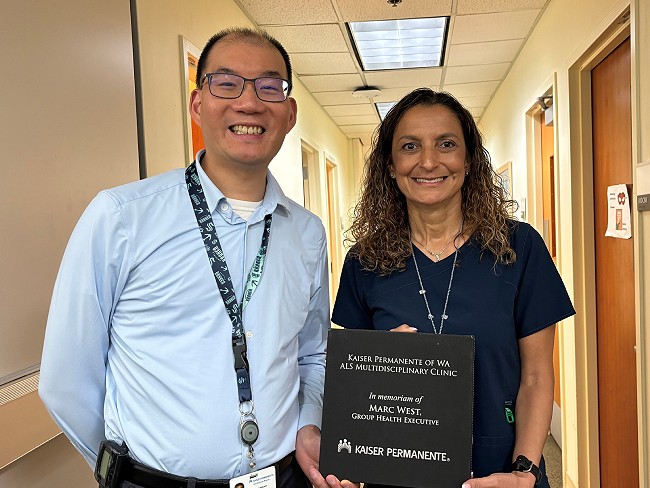
May 1, 2024
Tacoma ALS clinic recognized for high-quality care
Patients with amyotrophic lateral sclerosis, also called Lou Gehrig’s disease, …

April 17, 2024
5 common health conditions men don’t like to talk about
Some of the most common conditions affecting men carry a social stigma …

April 10, 2024
For a new mom, talking about her worries helped her heal
One in 5 people experience depression, anxiety, or other mental health …

April 9, 2024
Denver Fire Department annual blood work screenings triple
It’s easy to put off recommended health screenings, and sometimes even …

April 8, 2024
Reducing inequity with fruits and vegetables
Black Americans experience worse health outcomes compared to other populations. …

April 1, 2024
Lynch syndrome: Managing the risk of hereditary colon cancer
Lynch syndrome is a gene mutation that increases colon cancer risk. Learn …
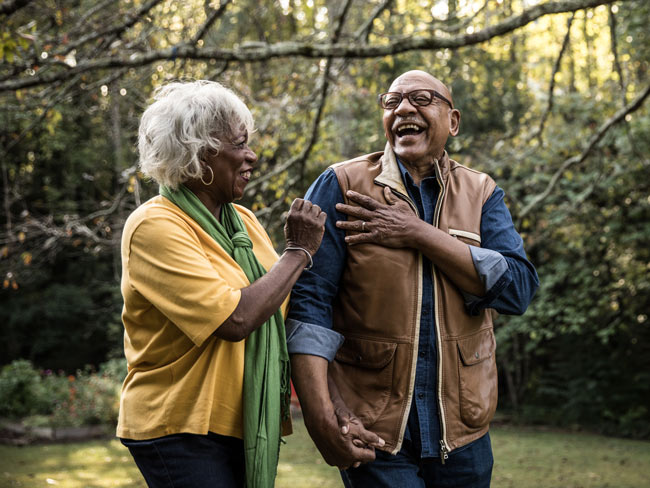
March 29, 2024
Stand up for your health!
Kaiser Permanente researcher Dori Rosenberg shares the importance of being …

March 29, 2024
Faster recovery: From cardiac scare to exploring Italy
Virtual cardiac rehab helped Mike Kelly heal at home after a life-threatening …

March 20, 2024
Life after cancer: Surviving and thriving
A healthy life after cancer is possible. Learn how Kaiser Permanente helps …

March 14, 2024
Healthy kidneys support overall good health
Kaiser Permanente excels in preventing, detecting, and treating kidney …

March 14, 2024
Midwife offers personal care for mom facing complications
For Sam Beeson, having a midwife at her side during her pregnancy helped …
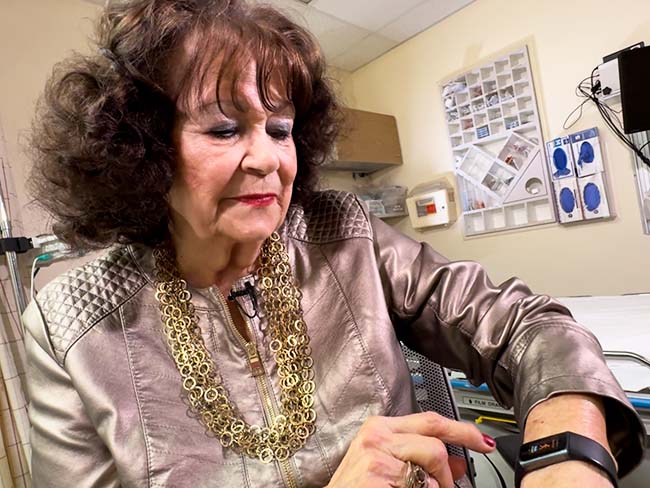
March 12, 2024
In-home recovery restores harmony to life
Colorado musician back with the band thanks to new virtual cardiac rehab …

March 6, 2024
Joining a national effort to test new ways to find cancer
As part of the Cancer Screening Research Network, our researchers will …
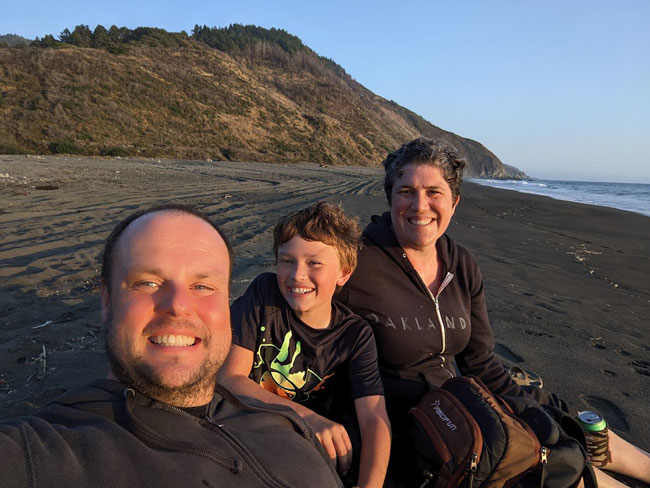
March 6, 2024
Colon cancer screening: She’s glad she didn’t wait
A timely preventive test reveals Rebecca Kucera has cancer. Swift treatment …

March 5, 2024
Researchers look for ways to find pancreatic cancer early
Early detection of the disease, before it becomes advanced, will increase …

February 22, 2024
The journey of a lifetime
Care teams at Kaiser Permanente Fontana Medical Center helped Phillip Crawford …

February 21, 2024
From planning his funeral to celebrating his wedding
Gabriel Abarca had no hope for his future. Then the team at Kaiser Permanente …

February 21, 2024
Recovering at home after a double mastectomy
Innovative surgical recovery program helps breast cancer patients safely …

January 24, 2024
A full-circle journey for one cancer survivor
Grateful for compassionate and successful Hodgkin lymphoma treatment at …

January 17, 2024
How diabetes can affect your heart
People with diabetes are more likely to have heart disease.

January 10, 2024
‘You don’t know unless you ask them’
Kaiser Permanente’s Patient Advisory Councils help us create exceptional …

December 19, 2023
Determined to drop the weight and stop the cycle of diabetes
Following a COVID-19-related hospital stay, Robert DeLeon took charge of …
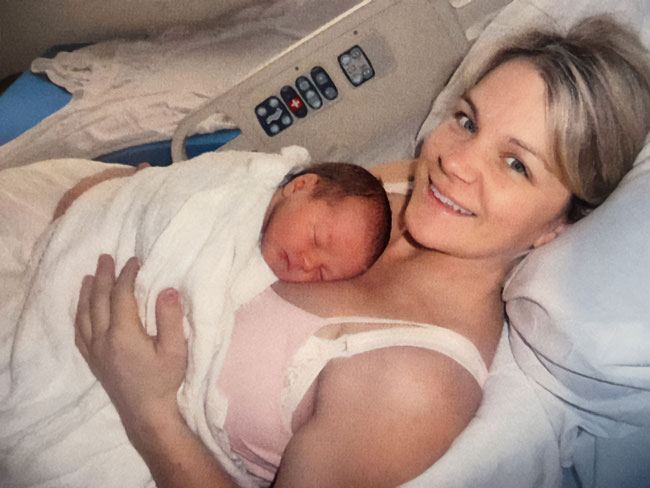
December 15, 2023
Family-centered care, through pregnancy and beyond
Members experiencing a low risk pregnancy have the option of having their …
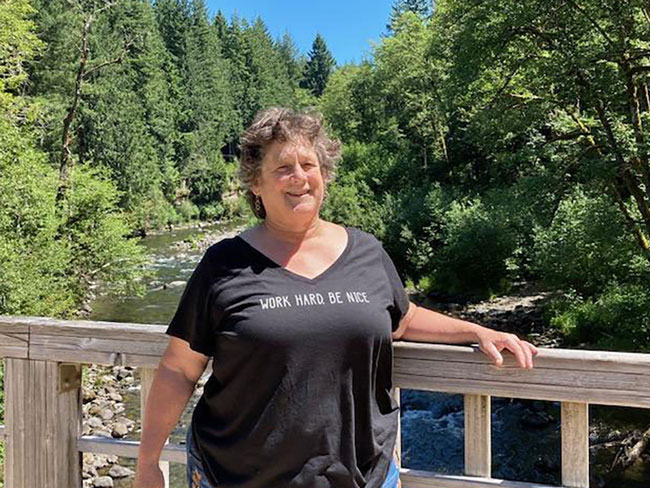
December 13, 2023
Nurse navigators guide patients from diagnosis to treatment
An unexpected cancer diagnosis left Jennifer Martin unsure of the next …

December 11, 2023
Our health plans earn high ratings
Kaiser Permanente’s commercial and Medicare health plans are rated either …

December 6, 2023
Leading research with gratitude
Learn how you can participate in a study to uncover what causes cancer …

December 6, 2023
Video prenatal visits are a boon for a busy working mom
A new care option offers a mix of in-person and virtual visits, supported …

December 1, 2023
Surviving — and thriving — after cancer
From diagnosis to recovery, David Parsons, MD, shares how screening, treatment, …

November 13, 2023
Take a deep breath (we can help with that)
It’s never too late to quit smoking. At Kaiser Permanente, we can help …

October 25, 2023
Breast cancer during pregnancy: Caring for mom and baby
A team of specialists treats an expecting mother’s cancer while keeping …

October 24, 2023
Childhood anxiety: What parents need to know
A child and adolescent psychiatrist shares tips on supporting your child …

October 23, 2023
A renewed sense of purpose after surviving breast cancer
Joy Short, a Kaiser Permanente member and employee, turned her breast cancer …
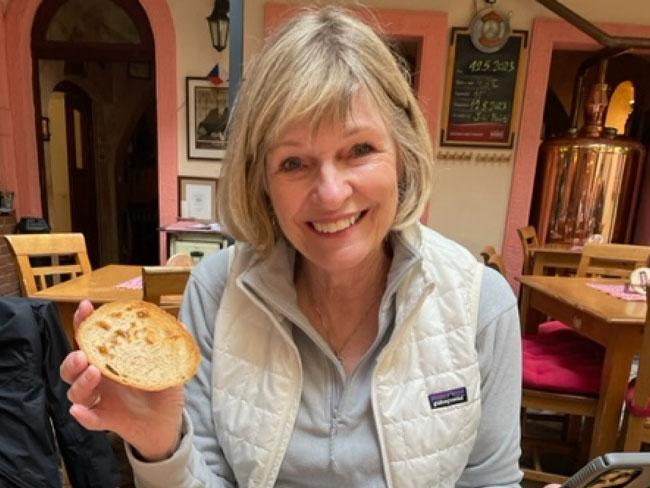
October 11, 2023
Early breast cancer detection improves quality of life
For 75-year-old Peggy Dickston, a surprise diagnosis was caught early thanks …

October 3, 2023
Nursing excellence recognized at Fontana Medical Center
The prestigious Magnet® designation affirms the compassion, dedication, …

September 20, 2023
Healing after a heart attack
For years, serious heart attacks meant hours of weekly appointments. Now, …

September 19, 2023
Is telehealth right for you?
Members give video visits high marks — and with a few simple tips, you …

August 29, 2023
Preventing overdoses starts with education
Risk factors are not always associated with addiction or substance abuse. …

August 17, 2023
Beyond clinic walls: Research supporting healthy communities
Stories in the Department of Research & Evaluation 2022 Annual Report demonstrat …

August 17, 2023
Cancer research: The role of immunotherapy
Research and clinical trials play a vital role in advancing cancer treatment …

August 16, 2023
Cervical cancer screening: Exploring the at-home HPV test
Kaiser Permanente is at the forefront of cervical cancer research. Find …

August 14, 2023
Marla’s story: Surviving acute promyelocytic leukemia
After a diagnosis for a rare type of blood cancer, Marla Marriott got high-quali …

August 10, 2023
Highlighting our community health work in Southern California
The Kaiser Permanente Southern California 2022 Community Health Snapshot …

August 4, 2023
Eating well and adopting healthy habits helps prevent cancer
Learn how lifestyle medicine is part of cancer care at Kaiser Permanente.
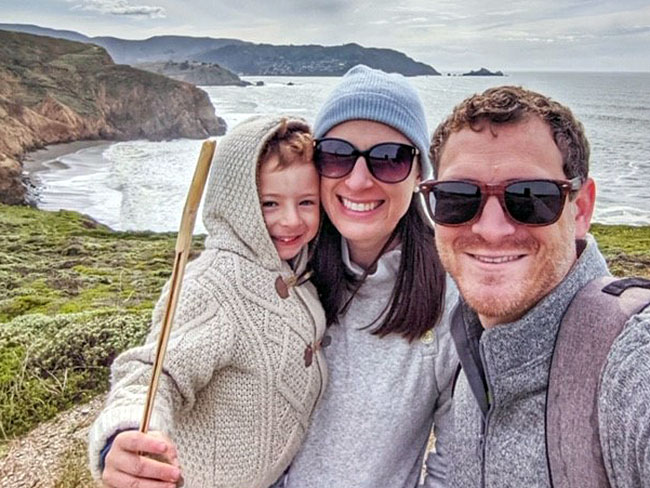
July 27, 2023
Courageously facing hereditary breast cancer
Fay Gordon's breast cancer was caught in the early stages thanks to genetic …
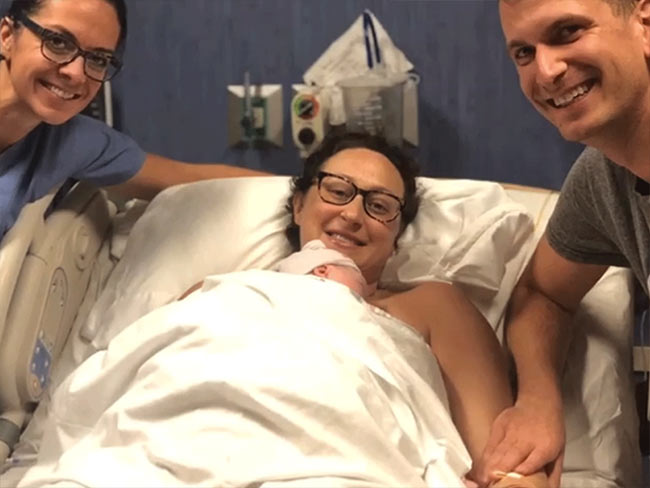
July 26, 2023
Can you get chemotherapy while pregnant?
Chemotherapy can be an option during pregnancy. Find out how Kaiser Permanente …

July 25, 2023
5 breastfeeding myths debunked
Tarayn Fairlie, MD, a pediatrician and lactation consultant, helps separate …

July 21, 2023
Thankful for every day after HPV-related cancer diagnosis
Michael West shares his incredible journey from diagnosis to treatment …
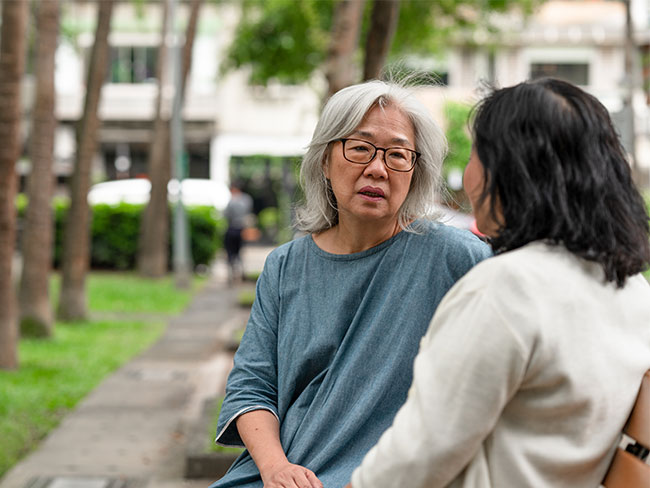
July 14, 2023
Breast reconstruction surgery after cancer
A Kaiser Permanente plastic surgeon explains breast reconstruction options …

July 11, 2023
We deliver excellence for parents and babies
Our members are more likely to feed their babies breast milk. And they’re …
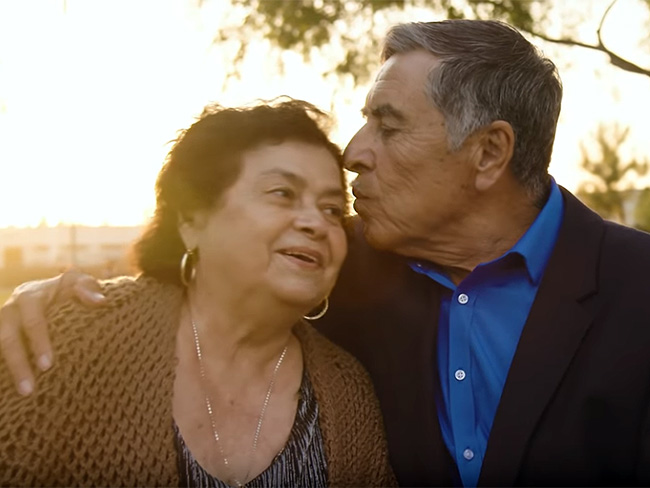
July 10, 2023
Beating colon cancer together: Miguel and Paula’s story
After they were both diagnosed with colon cancer, Miguel and Paula fought …